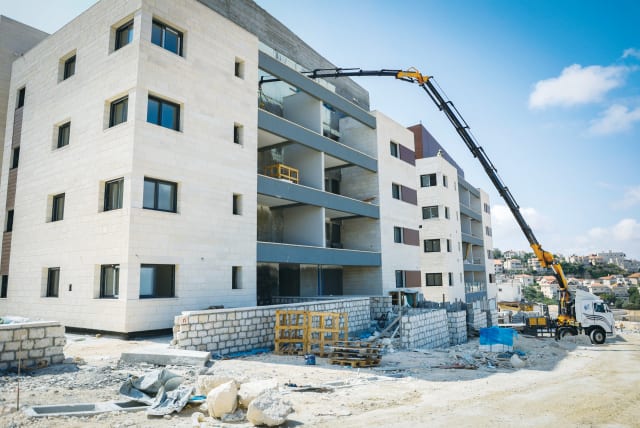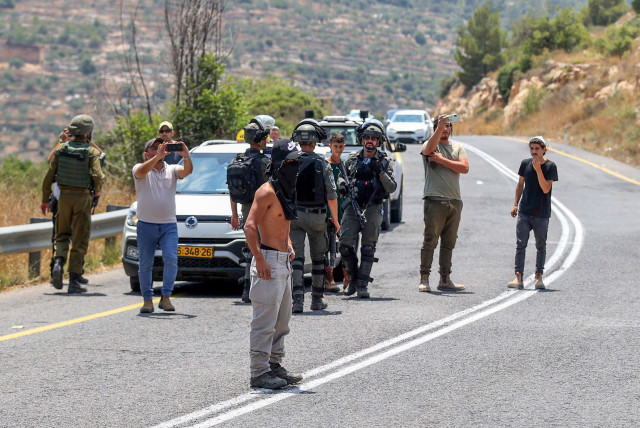A nuanced view of the Israeli-Palestinian conflict - opinion

Many people confuse a nuanced view with people-pleasing placation. They characterize any view that doesn’t fully align with their own as extreme.
There are few areas that are discussed with less nuance than the Israeli-Palestinian conflict. It can seem that all discussions on the “conflict” take place at the extremes.
Those who take the Israeli side of the debate unequivocally claim that Israel has a right to every inch of “greater Israel,” Palestinians have no national rights to the land, aren’t a people, and have been the beneficiaries of a benevolent Israeli rule.
Those who take the Palestinian side of the debate claim that Israel illegally occupies the space from the Jordan River to the Mediterranean Sea. They claim Palestinians have been denied their rights to land and water and are living under an oppressive apartheid Israeli regime.
Rarely do the advocates on either side of the debate compromise their positions or put effort into seeing things from their opponents’ perspectives. They impugn their opponents while refusing to see any errors on their side of the issue.
Both sides readily act as apologists for the extremists on their side, while rejecting any justification for the extremist acts of their rivals. It seems that there is always an excuse for their own sins and never any justification for their opponents’ sins.
There is a nuanced way to look at the Israeli-Palestinian conflict. As a Jew who lives in Judea and Samaria, I’m called a settler in the West Bank. I’m obviously biased toward the settlement movement and my perspective is pro-settlement.
But nuance and a pro-settlement position or pro-Palestinian position are not mutually exclusive. By understanding the feelings and perspective of the “other side” without justifying them, a person can develop a nuanced position on the Israeli-Palestinian conflict.
A person who favors Jews living in Judea and Samaria and the Israeli government controlling it can still humanize the Palestinians of the same area. They can recognize the truth that every poll of Palestinians demonstrates the overwhelming number of Palestinians support violence against Jews and over 90% hold antisemitic views – while still maintaining that not all Palestinians are terrorists.
The advocates of Jewish development in the disputed territories maintain that Jewish towns in Judea and Samaria are legal, and don’t qualify as the “illegal occupation” the Geneva Conventions outlaw.
One can insist that Palestinians living under Israeli rule receive full human rights, as defined by the United Nations, but as non-citizens of Israel, who don’t aspire for Israeli citizenship or to live in a Jewish state, they do not have a right to equal civil protections and benefits. Non-citizens receiving less civil rights is not considered discrimination or apartheid, but rather the same as the democratic practice of the United States towards American Samoans and the people of Guam and Puerto Rico.
These same nuanced Jews abhor Jewish violence against Arabs, whether it’s cloaked in vigilantism or naked hate. They refuse to call it settler violence because they oppose the notion that the Israeli violence conducted against random Palestinians is a natural outcome of the settler movement. This is evidenced by the many settler political leaders and rabbis who condemned the violence in places like Huwara. They can also recognize that this violence isn’t above the Jewish people and that even Jews can act violently.
Many people try to delegitimize the settler project by using the latest violence as a sign of the illegitimacy of the movement. The nuanced advocates of the settler project don’t view the violence against Palestinians as undermining the settler movement, because they don’t view the violence as connected to the settler movement.
This nuanced position on the Israeli-Palestinian conflict looks forward to a day that there will be peace between Israelis and Palestinians but objects to the claim that peace is dependent on Israel appeasing the Palestinians. It sees Palestinian terrorism and intransigence as bigger impediments to peace than the development of Jewish towns and the building of Jewish homes in the disputed territories.
Jews are indigenous to the land of Israel
It understands that Palestinians view Jewish settlements as being built on their land and hindering the establishment of a Palestinian state. While it understands that this is how the Palestinians view settlements, it doesn’t change the fact that as the indigenous people of the land, with a 3,000-year continuous presence in the land, the Jewish people have the strongest claim to the land.
This claim includes Judea and Samaria, the disputed territory the Palestinians call the West Bank and assert as their land. Judea and Samaria is the heartland of the Jewish homeland and irrespective of Palestinian claims, is no less part of the Jewish ancestral homeland than Tel Aviv, Haifa, or Netanya.
Many people confuse a nuanced view with people-pleasing placation. They characterize any view that doesn’t fully align with their own as extreme. A nuanced view means maintaining your own position while understanding your opponent’s position and taking it into account.
Nuance requires holding two truths simultaneously and accepting that they’re in dispute with each other.
Most people in the Israel-Palestinian conflict space can’t handle nuance and insist that their perspective is the only correct view of the situation. Be wary of views that lack nuance, they tend to bend towards the extreme and rarely paint an accurate picture of the reality on the ground.
The Israeli-Palestinian conflict is complex, with many layers overlapping each other. Painting one side or the other as completely just or completely evil misses the layers inherent in the conflict. Those of us who experience the conflict daily on our highways and in our towns live the complexity of the conflict and are frustrated with politicians, the media, and advocates painting a black-and-white picture that inevitably errs about the reality on the ground.
Solutions to the conflict will never be found by people with mistaken ideas about the situation. To reach the solution more nuance must be utilized in the Israel-Palestinian conflict space.
The writer is a certified interfaith hospice chaplain in Jerusalem and the mayor of Mitzpe Yericho, Israel. She lives with her husband and six children.
Jerusalem Post Store
`; document.getElementById("linkPremium").innerHTML = cont; var divWithLink = document.getElementById("premium-link"); if (divWithLink !== null && divWithLink !== 'undefined') { divWithLink.style.border = "solid 1px #cb0f3e"; divWithLink.style.textAlign = "center"; divWithLink.style.marginBottom = "15px"; divWithLink.style.marginTop = "15px"; divWithLink.style.width = "100%"; divWithLink.style.backgroundColor = "#122952"; divWithLink.style.color = "#ffffff"; divWithLink.style.lineHeight = "1.5"; } } (function (v, i) { });

